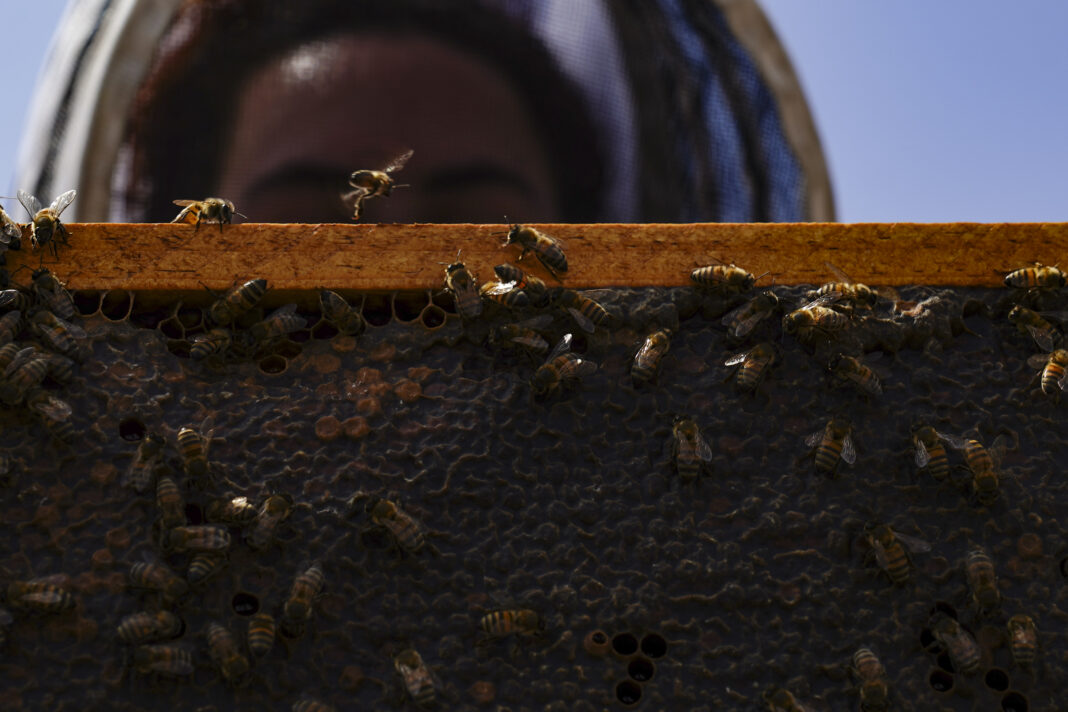If you’re an outdoors person, you’ve no doubt seen the yellow and black signs warning of Africanized bees in the vicinity here in the Rio Grande Valley.
The best defense against aggressive bees, most likely the Africanized bee, is avoidance.
But sometimes situations arise where that go-along-to-get-along philosophy doesn’t apply.
“And I hear this all the time, ‘Well, I just ran,’” said Dawn Johnston, who runs the bee removal service R9 Hive and Honey in Lyford. “Well, bees can fly 35 miles per hour, so good luck with that. Or they go, ‘I’ll just jump in the water.’”
“Well, bees aren’t dumb,” she added. “They saw where you went and you have to breathe, guy, you’re going to come back up sometime.”
Johnston said bees tend to focus on an intruder’s eyes, so put an arm over your face.
“The best thing to do is get out of the way, cover your eyes, and if you have to get away from them, walk briskly,” Johnston said. “How many horror movies have we watched where somebody is running away and they always trip and fall? And then you’re subject to getting stung.”
“If you’re being attacked and you’re in a car, turn your AC on full blast, they don’t like the cold, they’re going to try to get out of the windows and just get out of the area,” she added.
Contrary to a lot of perceived wisdom, bees will issue fair warning if only you can recognize it, she said.
“They never lie. They’re like small children, small children and animals never lie,” Johnston said. “They always say, ‘I am going to sting you now.’ They warn you. Have you ever heard one of the big, big buzzy bees just in front of you just going ‘Buzz! Buzz! Buzz! Buzz!’ really loud? That’s warning number one, you’re too close to a hive. You don’t know it, but she knows it.”
“Number two is when they bounce off of you. You’re walking and all of a sudden ‘boink!’ There’s a bee bouncing off you and you’re like, ‘What the heck was that? Stupid bee,’” she adds. “That’s warning number two.”
And warning three is, well, there’s no warning number three, really.
“Number three is I warned you twice, now I’m going to sting you,” Johnston said. “That’s typically how bees work because they know if they sting you, they die. They don’t want to die, so that’s why they warn you twice. They ask you, tell you, and then make you leave.”




